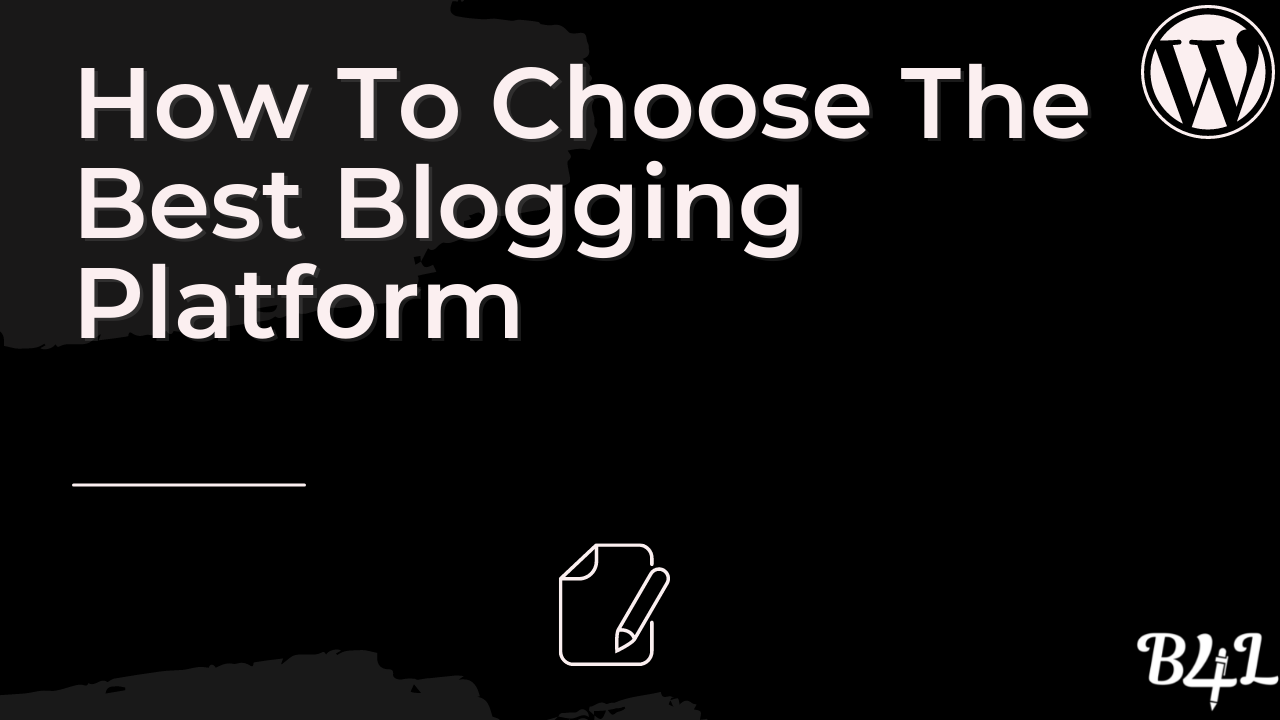Are you ready to start a blog but you’re wondering what platform to use? Or maybe you already have a list of blogging platforms to consider but you’re not sure which one among them would be the best for you?
You’ve come to the right place.
In this guide, you’ll learn how to choose the best blogging platform to use.
Whether you have some coding experience or you know nothing about programming, you’ll find this guide handy and helpful.
What is a Blogging Platform?
A blogging platform is a communication system built to help you produce, organize, and publish textual and visual content on the web.
More often than not, the information displayed on a blog is in the form of a reverse chronological order, with the most recent posts to the website appearing first.
Depending on your current budget and need, you can go for a free or paid blogging platform to hold your blog.
If you just want to keep a personal journal or share random information with people on the internet, a free blogging platform should work well for you.
However, if you want to get in the blogging business with the goal of making money or you want to use your blog for commercial purposes, you should utilize the service of a self-hosted blog.
How Do Blogging Platforms Work?
Blogging platforms allow you to submit a post, display the publishing date for the post, and show the author of the post.
In addition, the platforms make it easier for you to categorize content, making it easier for readers to find posts on the topics they would like to read.
What to Look for in a Blogging Platforms
The days when you’d have to hire a developer to code a blog from scratch for you are long gone.
Blogging technology has improved so much that you can have a blog up and running in under an hour without writing a line of code.
But with many blogging platforms readily available for one-click install, how do you know which option is the best for you?
Here’s what I recommend you look for:
1. Ease of Use
The last thing you want when setting up a blog is to start writing lines of codes when you shouldn’t be doing that in the first place.
Choose an easy-to-use blogging platform. Ensure your option is easy to setup and that it has a short and clear learning curve.
2. Monetization Options
Blogging isn’t just about writing and publishing posts. You’ll also want to include some form of custom monetization.
So it’s important to make sure the platform you choose gives you the option to customize your site to fit your monetization strategy.
Also, ensure the blogging platform you pick allows you to not only add third-party plugins but also give you the freedom to create your own ads and generate an income.
3. Scalability
I’m a sucker for flexibility. And if I’m being honest, I don’t do too well with products that don’t allow me to expand beyond the obvious.
If you’re anything like me, you should consider a blogging platform that allows you to scale your blog by adding more features as you grow.
4. Price
Paid blogging platforms have more premium functionalities. But that doesn’t mean the free ones are any bad.
Look at your blogging budget to determine whether you’d be more comfortable using a paid blogging platform or the free version.
5 Best Blogging Platforms for Bloggers
Here’s a list of the most popular blogging platforms that you might want to consider if you have no idea what solution to choose yet:
- WordPress
- Wix
- HubSpot CMS
- Medium
- Squarespace
Let’s look at each of these platforms in detail, so you can decide for yourself what solution would be more appropriate for you.
1. WordPress
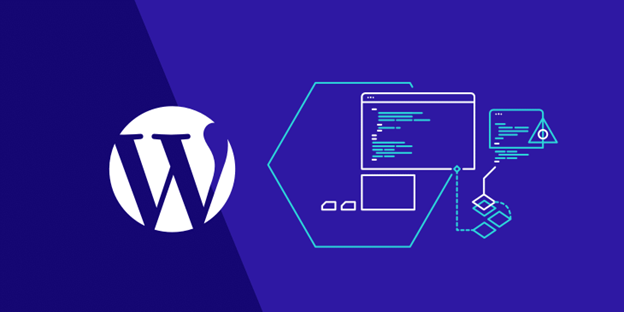
I run all my blogs on WordPress blogging platform, and I can tell you that it’s hands down the best CMS for beginners.
Created in 2003, WordPress powers some of the biggest brands in the world, including Time Magazine, Harvard University, BBC, Wired, and Rolling Stones.
WordPress has been free since start, making it one of the most popular solutions that powers the modern web.
You’ll love this platform because it’s easy to install. Moreover, it gives you full control of your website’s feature and you can customize its look and feel to your liking. With a ton of premium and free plugins developed specifically for this platform, WordPress makes it easy to grow your blog from a simple platform into a moneymaking machine.
WordPress.org is a solution that requires you to buy a hosting package and a domain name, so you should be ready to spend. Also, there are premium themes and plugins, which you can buy to extend the functionality of your blog in the future.
2. Wix
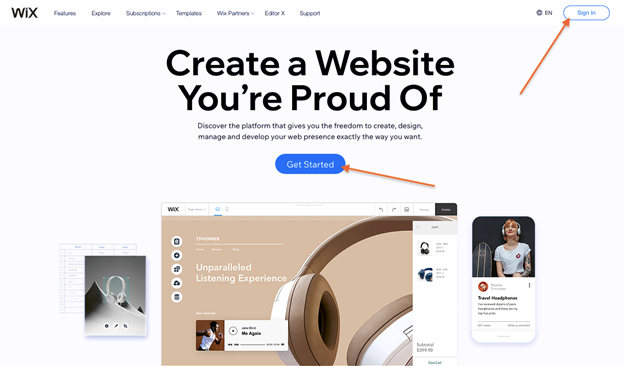
Wix is one of the most popular blogging platforms with more than 110 million users. I’ve built a free version of a website on the platform, and I have to admit that it’s easy to use.
I recommend using Wix because it comes packed with the tools you need to build beautiful, conversion-focused blogs and websites without ever having to write a line of code.
Although you can launch your blog with their blog app for $0, it’s best to buy a premium package so you can connect your custom domain and build for yourself a unique brand online.
You will love Wix because it’s easy to setup and it includes pre-built themes that you can use to change the look and feel of your website. You also have the option to start an online store with them, only that there are limited features for this option.
The problem with Wix is it’s not an SEO-friendly blogging platform. So unless you’re blogging for fun, or SEO isn’t going to be your major focus as a blogger, you might want to consider moving past this platform.
3. HubSpot CMS
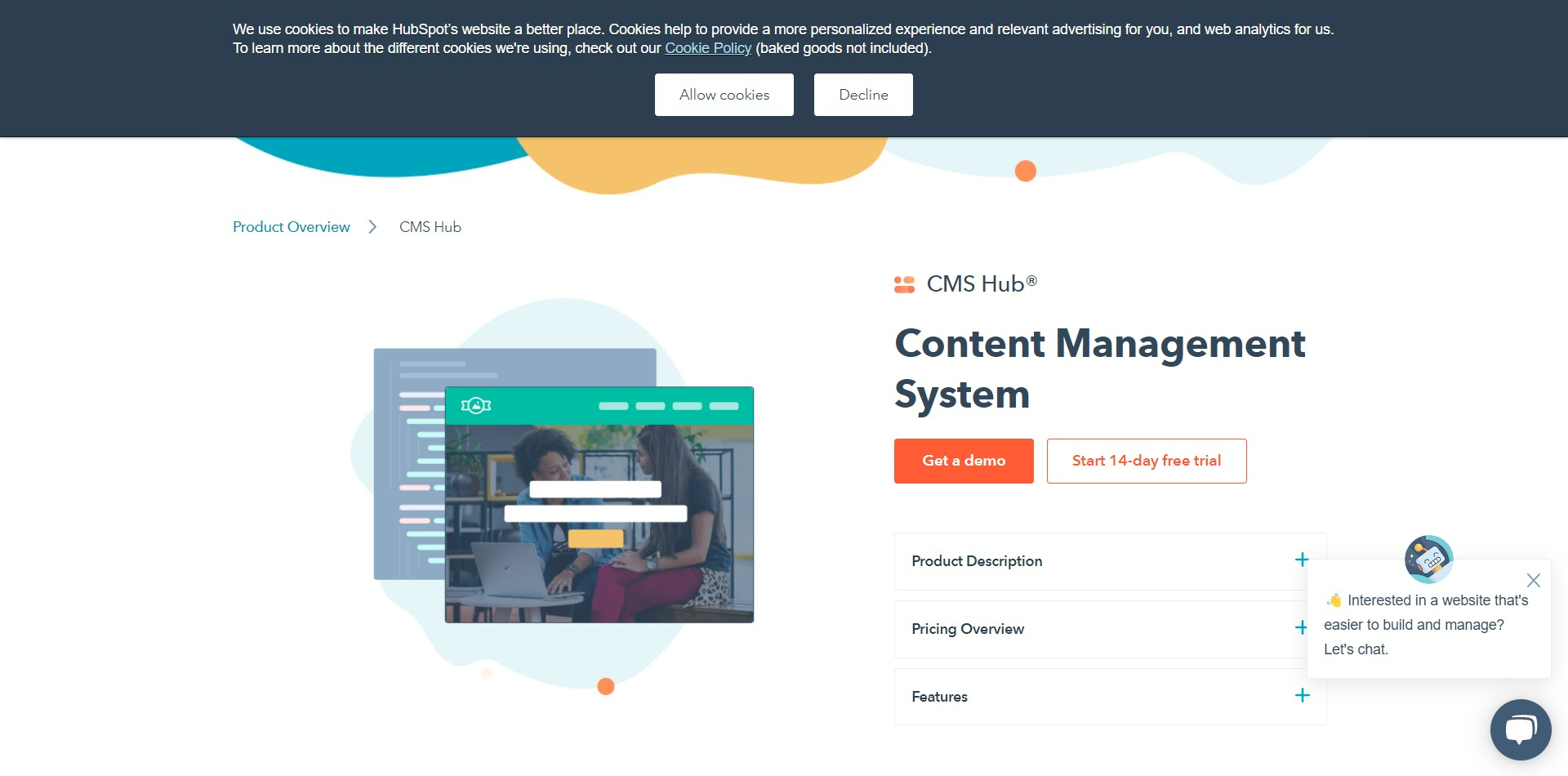
HubSpot CMS is a feature-packed blogging platform for personal and business use. Because the brand has it built on top of its marketing and CRM tool, it should be easy to access and manage.
HubSpot CMS makes it easy to create your blog from the ground up without writing codes.
You will love HubSpot CMS because it allows you to build your blog using drag and drop technology. The quick and easy setup process means you can have your website up and running in minutes. And given that the CMS is 100% SEO and conversion optimized, it shouldn’t be difficult to establish your online visibility with the tool.
4. Medium
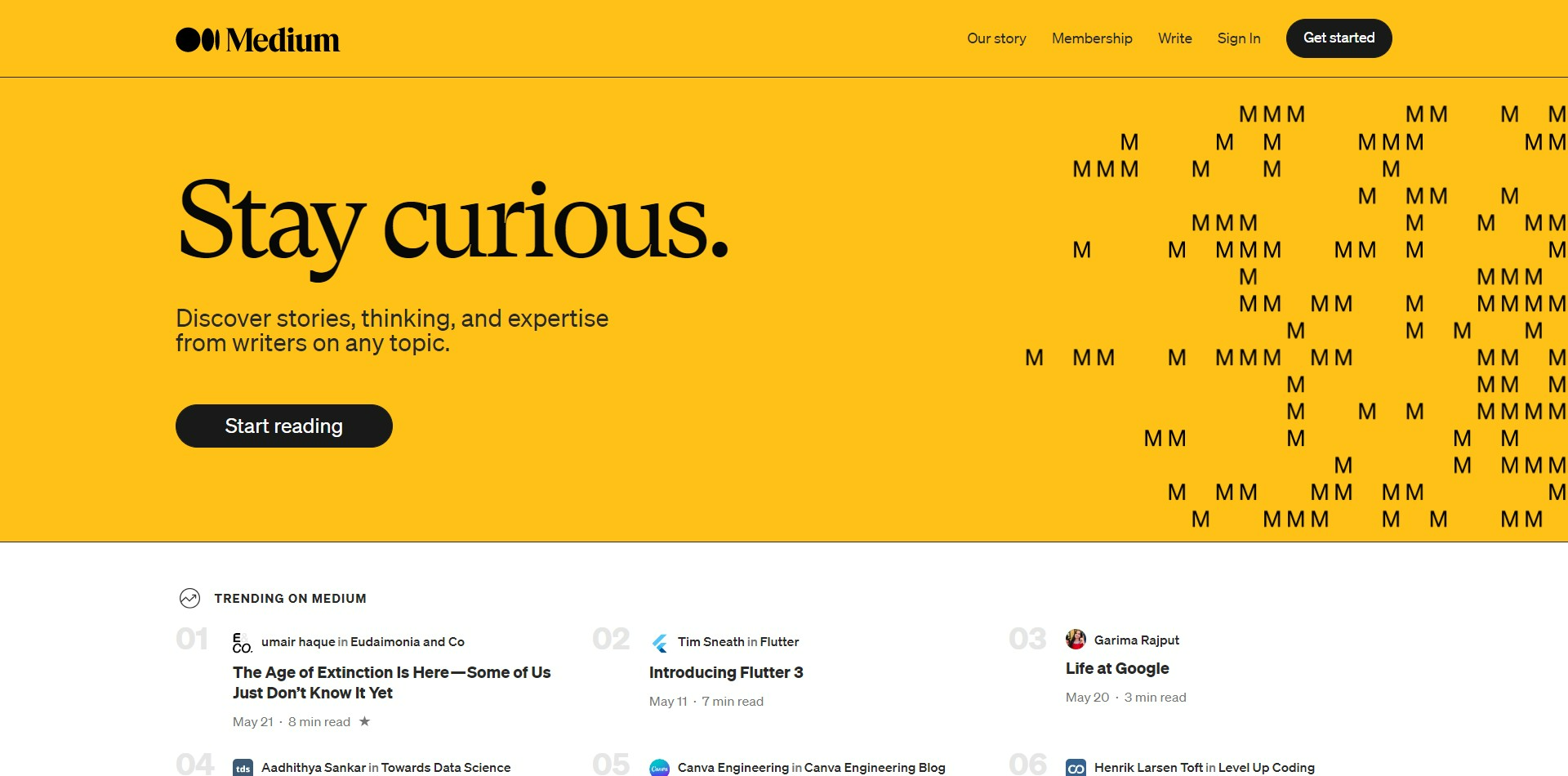
Started in 2012, Medium has grown to become one of the most popular Web 2.0 platforms that publish hundreds of thousands of user-generated content every month.
Medium may be a good blogging platform because it’s free. But other than getting your written work an exposure and sharing your ideas, skills, and thoughts with a large social community, Medium isn’t the solution to consider if you wish to run a full blog where you can promote your products and service.
One of the biggest problems with Medium, which is similar to all the free blogging platforms, is that the brand reserves all the rights to terminate your account – even without prior notice.
And if you lose your Medium account, you lose your audience as well.
5. Squarespace

Squarespace has been in business since 2003 and it currently powers over 450,000 websites. In my opinion, Squarespace is an ideal solution for someone who needs a simple blogging platform that allows him or her to create simple but visually appealing websites.
In addition to creating your blog without writing a line of code, Squarespace agency also gives you the option to create podcasts and build an online store. Also, they have ready to use templates, which you can use to customize the look and feel of you website (or blog).
Like WordPress, Squarespace prides itself in being easy to use, with ready-to-use templates that you can activate with the click of a button. Plus, you don’t have to worry about hosting because you can get that on the Squarespace blogging platform.
I should make it clear that Squarespace has its drawback.
First, the platform doesn’t have a free plan. Second, they have everything tied to their platform, which means they aren’t very flexible, so you can’t get any third party add-ons to their platform.
Given that they don’t offer enough customization options, Squarespace is highly likely to feel more restrictive.
Which Blogging Platform Should I Use?
Two words:
Use WordPress.
I recommend that you use WordPress because it’s an easy to use platform, which gives you full control over your website and blog.
With over 50,000 plugins to choose, you can turn your WordPress site from a simple blog into a powerful content platform with huge monthly readership.
Here is how to set up your WordPress blog from scratch without any programming experience.
Conclusion
Now that you know how to choose the best blogging platforms and the examples to consider, it shouldn’t be difficult for you to decide what platform to use when you’re ready to start your blog.

